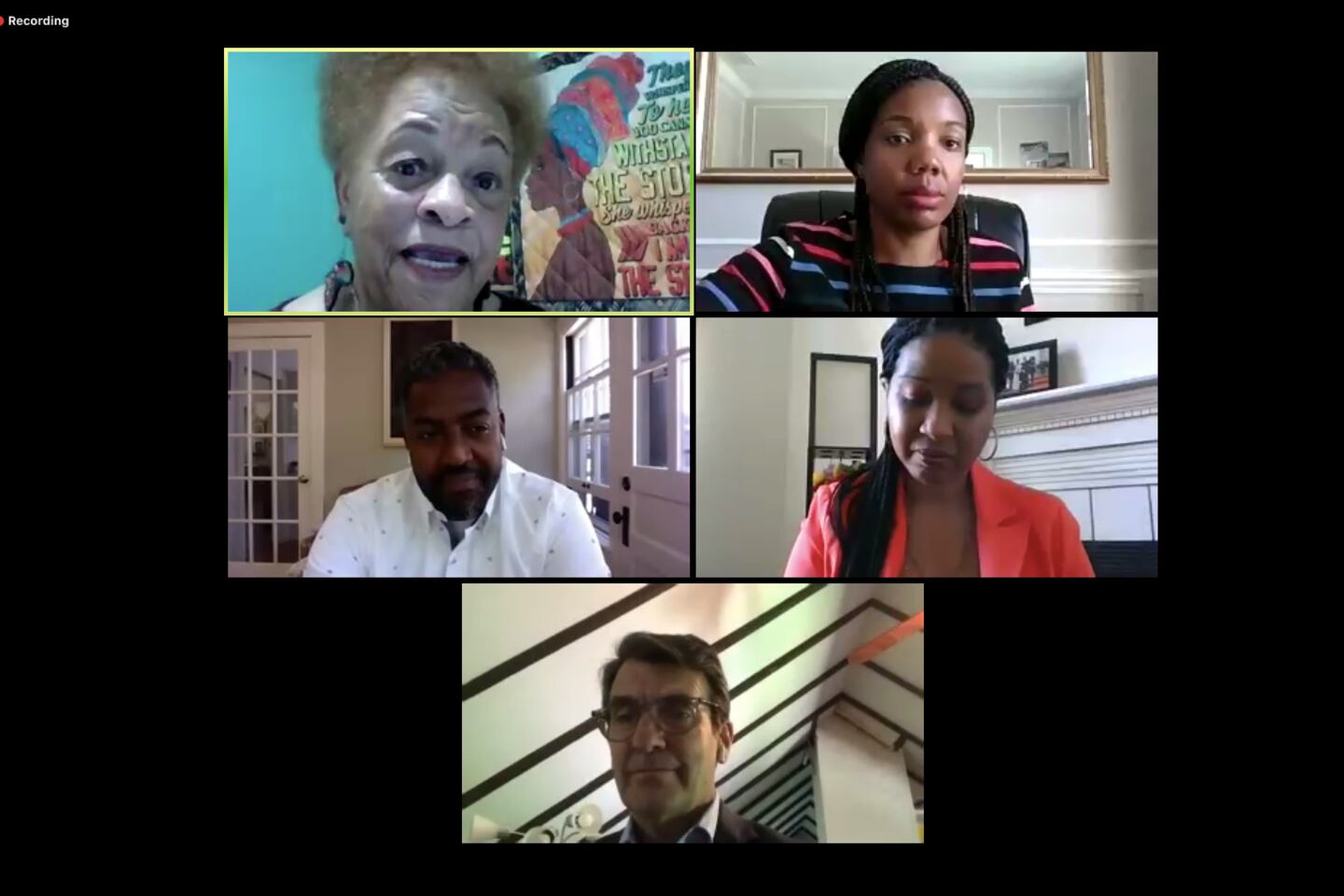Indianapolis Public Schools is aiming to expand racial equity training to all schools and staff as the state’s largest district works to foster open discussions of racism.
At a moment when protesters across the country are calling attention to racism in the wake of the Minneapolis police killing of an unarmed Black man, IPS leaders are aiming to provide resources for families and educators, train staff, and talk publicly about the racism facing many of the district’s students.
“Everybody is responsible for the children in our schools, and everybody lives and breathes the same air of racism that exists in our country,” said Superintendent Aleesia Johnson during a video conversation about race livestreamed Friday. Ultimately, the goal is for all staff to go through racial equity training.
Johnson also said the district, which has its own police department, is examining the role of police in schools following other districts’ decisions to remove police from schools. IPS officials review data regularly and have reduced the size of the department since 2015, Johnson said. (IPS did not immediately respond to a request for more information on how many officers are in its department and how much it has shrunk.)
Johnson, who has been vocal about the need to talk honestly about race since she was hired nearly a year ago, was joined by IPS board President Michael O’Connor, Vice President Evan Hawkins, IPS communications chief Kristian Stricklen, and Pat Payne, a 58-year veteran of the district who was instrumental in pushing for equity training.
Racial Equity Institute trainings, which draw wide praise from participants, are the linchpin of efforts to combat bias in a school district where 42% of children are Black and 31% are Hispanic. The effort began five years ago, and staff at 29 schools have been through the training, Payne said.
As a result of the pandemic, the training will be offered virtually and significantly more people will be able to participate, Johnson said.
It’s crucial for educators across the district to understand the role of racism so that they don’t accept worse outcomes for Black students, Payne said. Parents and educators should question why Black boys are more likely to be in special education classes or face harsh discipline and less likely to be in classes for high-ability students, she said.
“Students will bend to meet your low expectations, just like they will rise to meet your high expectations,” Payne said.
Much of the video conversation reflected the broader discussion of racism that is taking place in school districts, churches, and communities around the country. Hawkins, who is Black, spoke about what it was like to be followed by the police as a child, to be pulled over for no reason, and to be the only Black man in business settings.
“This is important that we get it right because this is crushing,” he said.
O’Connor, who is white, said that white people must not only grow and improve but also ask forgiveness for not acting sooner.
“I’m going to try to do better,” he said. “When I see [racism] I will call it out.”






